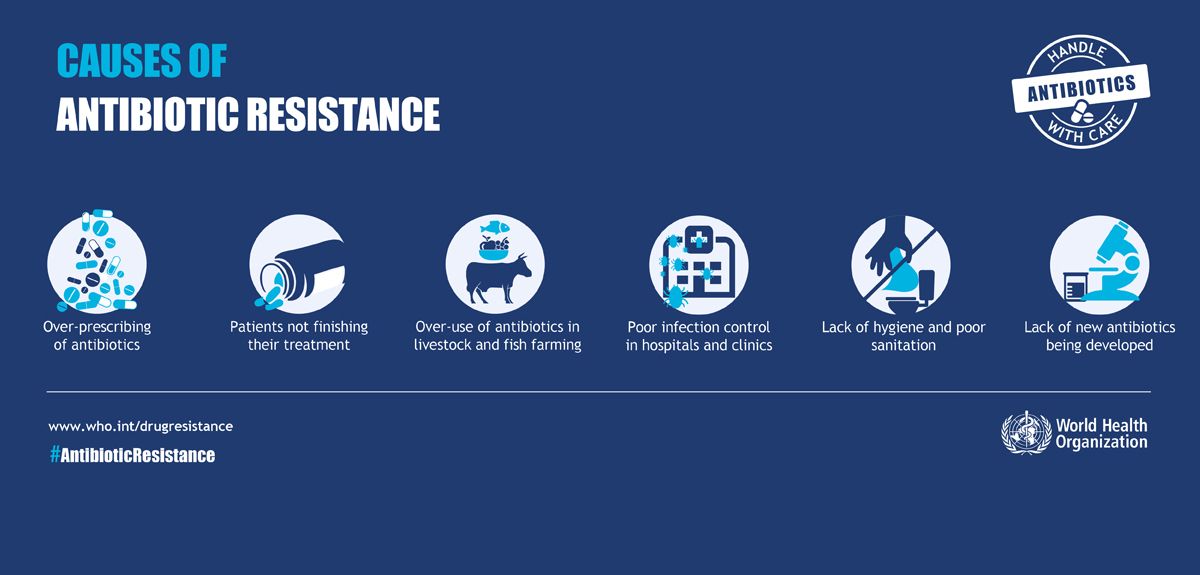Antimicrobial Resistance
2023 OCT 23
Preliminary >
Science and Technology > Biotechnology > Antimicrobial resistance
Why in news?
- World Health Organisation (WHO) released core package interventions on Antimicrobial Resistance (AMR).
About the Interventions
- Interventions guide country in developing, implementing and monitoring national action plans on AMR.
- It promotes people-centered approach {shifting from solely biological phenomenon (drug resistance)}. These interventions are based on four pillars and two foundational steps.
- Four pillars are: Prevention of infections, Access to essential health services, Timely and accurate diagnosis and appropriate and quality-assured treatment.
- Two Foundational steps are:
- Effective governance, awareness and education.
- Strategic information through surveillance and research.
About Antimicrobial Resistance
- Antimicrobial resistance (AMR) is the ability of a microorganism to stop an antimicrobial (such as antibiotics, antivirals and antimalarials) from working against it.
- As a result, standard treatments become ineffective, infections persist and may spread to others.
- Irrational use of drugs, overdosing or under-dosing, self-medication, misuse of drugs, and the inappropriate use of antimicrobials etc are the leading reasons behind growth of AMR.
- The term antibiotic resistance (AR or ABR) is a subset of AMR, as it applies to bacteria that become resistant to antibiotics.
- Resistant microbes are more difficult to treat, requiring higher doses, or alternative medications which may prove more toxic.
- These approaches may also be more expensive. Microbes resistant to multiple antimicrobials are called multidrug resistant (MDR)
Causes

Key Initiatives
- National action plan (2017) on containment of AMR focusing on One Health approach.
- National AMR surveillance network of state medical college labs (NARS-Net) to generate quality data on AMR.
- Global Action Plan on AMR (World Health Assembly, 2015).
PRACTICE QUESTION
How many of the following is/are cause(s) of antibiotic resistance?
- Lack of use of antibiotics in livestock farming.
- Over-prescribing of antibiotics.
- Lack of hygiene and poor sanitation.
Which of the statements given above is/are correct?
(a) Only one
(b) Only two
(c) All the three
(d) None of these
Answer
